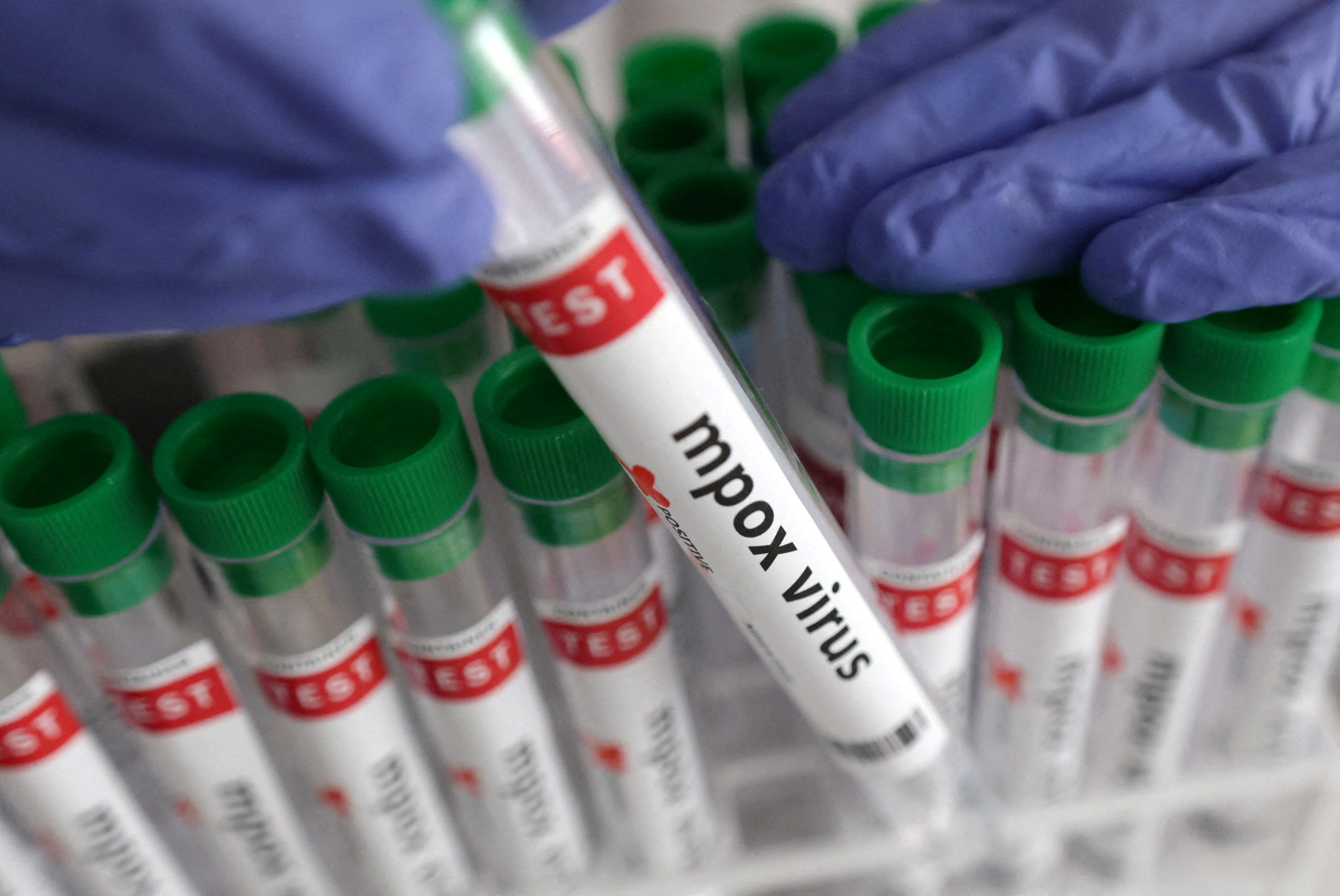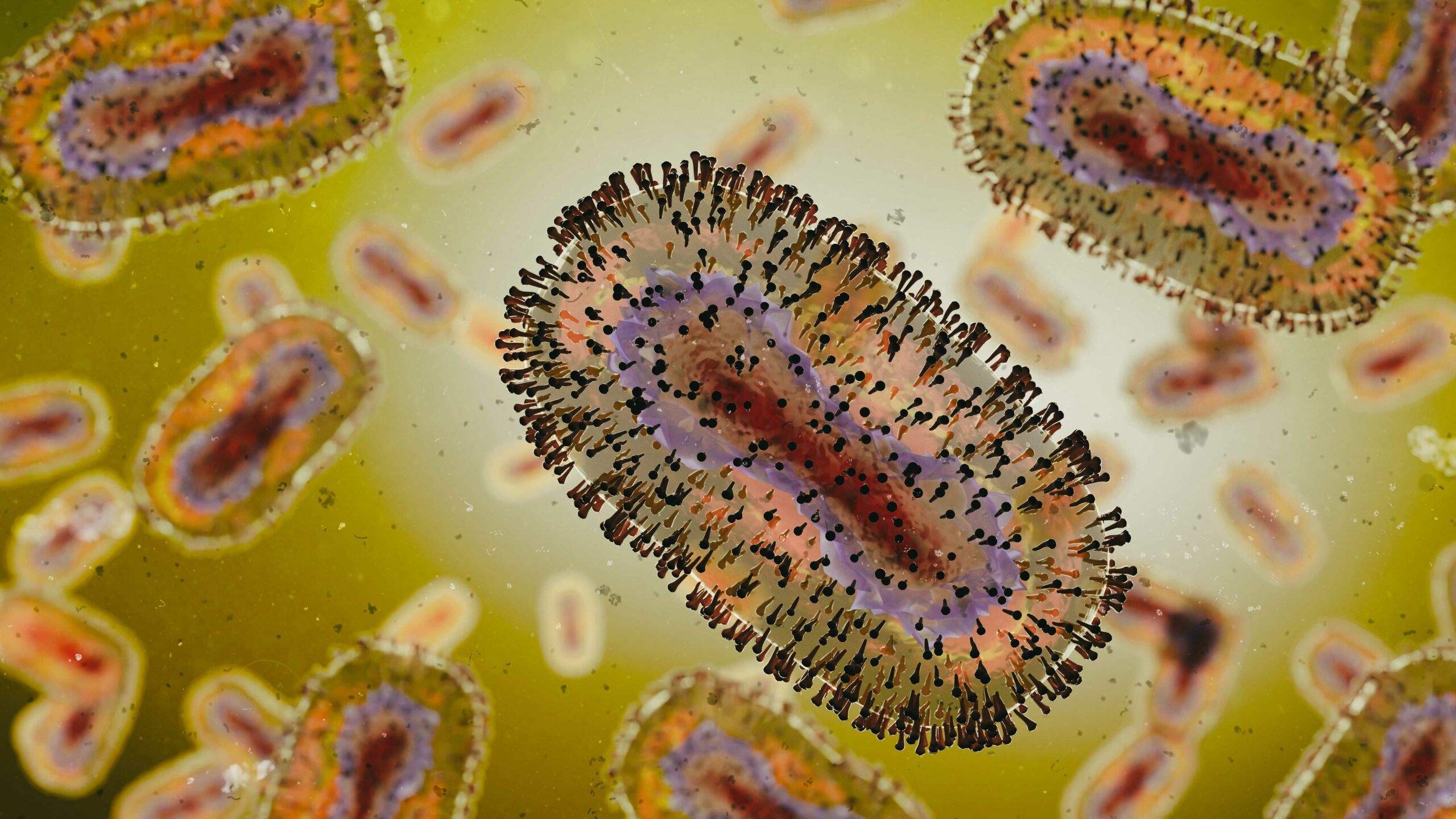Through meticulous analysis and extensive research, we have compiled this comprehensive guide on "Mpox Outbreak In Ireland: Latest Updates, Prevention, And Treatment" to assist our target audience in staying informed and taking the necessary steps to protect themselves and their loved ones.
| Description | Latest Updates | Prevention | Treatment |
|---|---|---|---|
| Situation overview, Transmission, Symptoms, Case Count | Vaccination, Hygiene, Reducing Risk | Antiviral Medications, Wound Care, Pain Management |
FAQs
Stay informed and protected with our comprehensive FAQs on the Mpox outbreak in Ireland. This resource provides crucial information on prevention, treatment, latest updates, and more. Empower yourself with accurate knowledge to safeguard your health and well-being.

Germany to donate 100,000 mpox vaccine doses to combat outbreak in - Source www.reuters.com
Question 1: What is the current situation regarding the Mpox outbreak in Ireland?
The Health Protection Surveillance Centre (HPSC) reports the ongoing outbreak of Mpox in Ireland, with confirmed cases. This rare but serious viral infection requires prompt attention and appropriate preventive measures.
Question 2: How is Mpox transmitted?
Mpox is primarily transmitted through close physical contact with an infected person, contaminated materials, or respiratory droplets during prolonged face-to-face interactions. Avoid direct contact and practice good hygiene to minimize risk.
Question 3: What are the symptoms of Mpox?
Initial symptoms resemble flu-like conditions, including fever, muscle aches, and swollen lymph nodes. A characteristic feature is the development of a rash, often starting on the face and spreading to other body parts. Seek medical advice promptly if you experience these symptoms.
Question 4: How can I prevent Mpox?
Limiting close contact with infected individuals and adhering to strict hygiene practices are crucial. If exposed, consider post-exposure prophylaxis (PEP) or vaccination within four days to prevent or reduce symptoms.
Question 5: Is there a cure for Mpox?
Currently, no specific cure exists for Mpox. Treatment focuses on managing symptoms and preventing complications. Antiviral medications may be prescribed, and supportive care includes pain relievers, fluids, and rest.
Question 6: Where can I get further information and support?
Stay up-to-date with official sources such as the Health Service Executive (HSE) or the World Health Organization (WHO). Seek medical guidance from your healthcare provider or visit your local sexual health clinic for testing, treatment, and counseling.
Remember, Mpox is a serious but manageable infection. By understanding the facts, taking preventative measures, and seeking timely medical care when necessary, we can collectively mitigate its impact on public health.
Transition to the next article section: For additional insights and expert perspectives, explore the comprehensive coverage of the Mpox outbreak in Ireland provided in the following sections of this article.
Tips
Following the outbreak of Mpox in Ireland, it is crucial to prioritize prevention and treatment measures. Here are some essential tips to mitigate the spread of the disease and protect yourself and others.
Tip 1: Practice Good Hygiene
Wash your hands frequently with soap and water for at least 20 seconds, particularly after using the bathroom, before eating, and after being in public places. Avoid touching your mouth, nose, and eyes with unwashed hands.
Tip 2: Avoid Close Contact with Infected Individuals
If you know someone who has been diagnosed with Mpox, limit close contact with them. Maintain a distance of at least 6 feet and wear a face mask when interacting with them.
Tip 3: Get Vaccinated
Vaccination is the most effective way to prevent Mpox. If you are eligible for the vaccine, get vaccinated as soon as possible. It is important to remember that it takes several weeks for the vaccine to provide full protection.
Tip 4: Be Aware of Symptoms
Mpox symptoms may include fever, headache, muscle aches, swollen lymph nodes, and a rash that often starts on the face and spreads to other parts of the body. If you experience any of these symptoms, seek medical attention immediately.
Tip 5: Protect Healthcare Workers
Healthcare workers are at an increased risk of contracting Mpox. If you are a healthcare worker, wear appropriate personal protective equipment (PPE) when caring for patients with suspected or confirmed Mpox.
Tip 6: Educate Yourself
Stay informed about the Mpox outbreak and its risks by reading reputable sources such as the Health Service Executive (HSE) website. Sharing accurate information with others helps to reduce stigma and promotes responsible behaviors.
Tip 7: Be Patient
Controlling the spread of Mpox may take time. It is important to be patient and continue following recommended prevention measures. By working together, we can help to contain the outbreak and protect our communities.
For more detailed information on the Mpox outbreak in Ireland, including the latest updates, prevention strategies, and treatment options, please Mpox Outbreak In Ireland: Latest Updates, Prevention, And Treatment.
Remember, these tips are essential for protecting yourself, your loved ones, and the community. By following these recommendations, we can effectively combat the spread of Mpox and work towards ending the outbreak.
Mpox Outbreak In Ireland: Latest Updates, Prevention, And Treatment
The mpox outbreak in Ireland necessitates immediate attention to crucial aspects like epidemiology, clinical features, prevention strategies, and treatment options.
- Epidemiology: Cases, transmission, risk factors
- Clinical Features: Symptoms, severity, complications
- Prevention: Vaccination, personal hygiene, social distancing
- Treatment: Antivirals, supportive care, infection control
- Public Health: Surveillance, contact tracing, isolation protocols
- Research: Vaccine development, therapeutic advancements
These key dimensions provide a comprehensive understanding of the mpox outbreak in Ireland. Continued vigilance in epidemiology, clinical research, and public health measures are essential for mitigating its spread and improving patient outcomes. International collaboration and knowledge sharing are crucial in addressing emerging infectious disease threats effectively.

Mpox Outbreak: What to Know About Symptoms and Risks - The New York Times - Source www.nytimes.com
Mpox Outbreak In Ireland: Latest Updates, Prevention, And Treatment
The mpox outbreak in Ireland is a significant public health concern. As of August 12, 2022, there have been 66 confirmed cases of mpox in Ireland. The majority of cases have been in men who have sex with men (MSM), and the virus is primarily spread through close contact with an infected person's sores or bodily fluids.

Resurgence of Mpox, Clade I in the Democratic Republic of Congo – 2023 - Source www.afroscreen.org
The symptoms of mpox can include fever, headache, muscle aches, backache, swollen lymph nodes, and a rash that starts as small, red bumps and progresses to fluid-filled blisters. The rash can appear anywhere on the body, but it is most commonly seen on the face, hands, and genitals.
There is no specific treatment for mpox, but the symptoms can be managed with supportive care. Most people recover from mpox within a few weeks, but some people can develop serious complications, such as encephalitis (inflammation of the brain) or sepsis (a life-threatening infection).
The best way to prevent mpox is to avoid close contact with infected people and to practice good hygiene. If you think you may have been exposed to mpox, see your doctor immediately.
Conclusion
The mpox outbreak in Ireland is a reminder that this virus is still circulating and that anyone can be infected. It is important to be aware of the symptoms of mpox and to take steps to protect yourself from infection.
If you have any concerns about mpox, please speak to your doctor.



